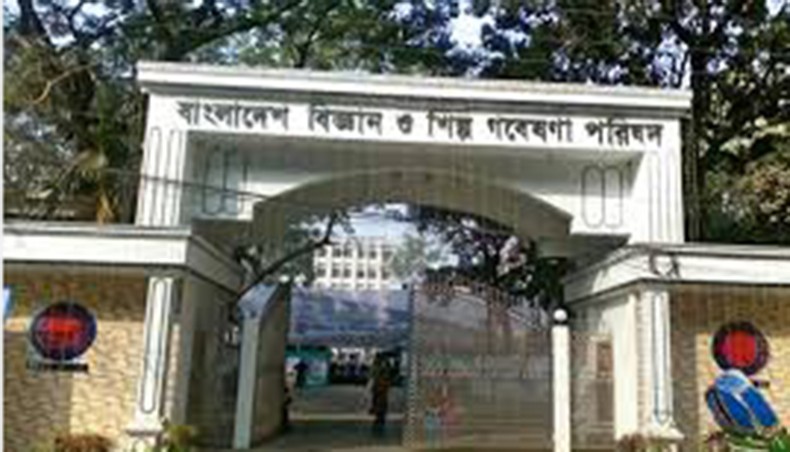BCSIR misfires for decades
The country’s leading multidisciplinary public research institute, Bangladesh Council of Scientific and Industrial Research, has only a few original researches to its credit in its lifetime spanning over six decades.
Most of the technologies, which the BCSIR developed or modified over the years, have hardly any impact on the market, according to officials and users.
It so far introduced 960 technologies, more than half of which have not been commercially launched into productions while a small number of BCSIR products are available in the market.
Science and technology minister Yeafesh Osman has blamed lack of investors for this dismal picture of the BCSIR technologies.
‘What can we do if people don’t accept our technologies?’ he asked in a voice mixed with indifference.
Established in 1955, BCSIR conducts research in the fields of science and technologies of food, fuel, plant, glass, ceramics, leather, mining and chemical.
It so far introduced 960 technologies and 425 of which were commercially released until 2016, informed BCSIR research coordinator Monzur Morshed Ahmed.
Only 115 out of 425 BCSIR-technology-made products survived in the market, he said.
The products could not survive in the markets as they were neither commercially viable nor of good quality, a senior official explained.
Manufacturing of Partex from jute stick is still recognised as the most noteworthy scientific achievement of BCSIR under the supervision of scientist Quadrat-i-Khuda, who instituted the BCSIR.
Preparation of malt vinegar from the juice of sugarcane and molasses, rayon from jute and jute stick and paper from jute are some well-recognised works of BCSIR.
But as per its current records, BCSIR is now engaged in research in producing herbal foods, drinks, shampoo, toothpaste, cream, and so on.
A number of 1,630 people work at BCSIR that operates under the Ministry of Science and Technology.
It has 11 institutes having modern laboratories, but none of them has international acceptance.
The standard of the BCSIR-developed technologies and products is not even acceptable to Bangladesh Standard and Testing Institution and Drug Administration.
An official document shows that BSTI objected to a number of 231 products, which were produced using BCSIR technologies.
‘BSTI and Drug Admin often seize products from shops although they are produced using BCSIR technology’, said an official pointing to a technology used for producing calcium tablets from coral reef.
In the past five years, from 2012 to 2016, BCSIR leased out 99 technologies to different investors.
The items were mostly herbal foods, drinks, shampoo, toothpaste, cream and some chemical items like fire extinguishing powder and engine oil or grease.
No reputed company took lease of the technologies.
In 2016, some 21 technologies were commercially released. Of them, 19 items are herbal foods and cosmetic products, one is silica gel used for moisture control and another product is lubricating grease used in machineries.
Focus Lubricant of Jessore took the lubricating grease from BCSIR and its owner Tapan Kumar Choudury told New Age that the product has a medium market demand. ‘Being a businessman I would rather say it does not sell well,’ he said.
BCSIR leased out technologies for a certain period to the interested investors. A technology is leased out at Tk 60,000 to Tk 2.5 lakh, said officials.
BCSIR also provides analytical service to different industries or institutions when they face problems, but question has also been raised about its analytical services.
Frustrated with the service, an ACI Agro official shared with New Age how they examined if the mangoes they collected from farmers were formalin-treated or not.
‘The BCSIR report showed that the mangoes were not formalin-treated while the BSTI found formalin in the mangoes’, he said.
Research coordinator of BCSIR Monzur Morshed Ahmed said BCSIR had no internationally accredited lab, but the 34 water quality parameters, which it analysed, were internationally accepted.
‘We are working to get international accreditation,’ Monzur informed.
Asked about quality of research, Monzur said BCSIR was not capable of carrying out original research, but it conducted applied researches to develop technologies.
‘We are trying to introduce technologies to utilise the indigenous plants and resources of our country’, he said.
Asked if the BCSIR technologies were not commercially viable for which the investors were not interested to adopt them, Yeafesh Osman said, ‘We develop technologies out of our own pleasure… we cannot assure if the technologies will be well accepted or not’.
About the lack of acceptance of BCSIR laboratories internationally, he said Designated Reference Institute for Chemical Measurement (a unit under BCSIR) had international acceptance.
Moreover, when asked why BSTI raised questions about the BCSIR-introduced products, Yeafesh said, ‘We only introduce technologies; we have no responsibility to check their quality.’
‘It would be good if there were any coordination among BCSIR and BSTI’, he, however, added.
- See more at: http://www.newagebd.net/article/7664/bcsir-misfires-for-decades#sthash.EKJiNwAY.dpuf











